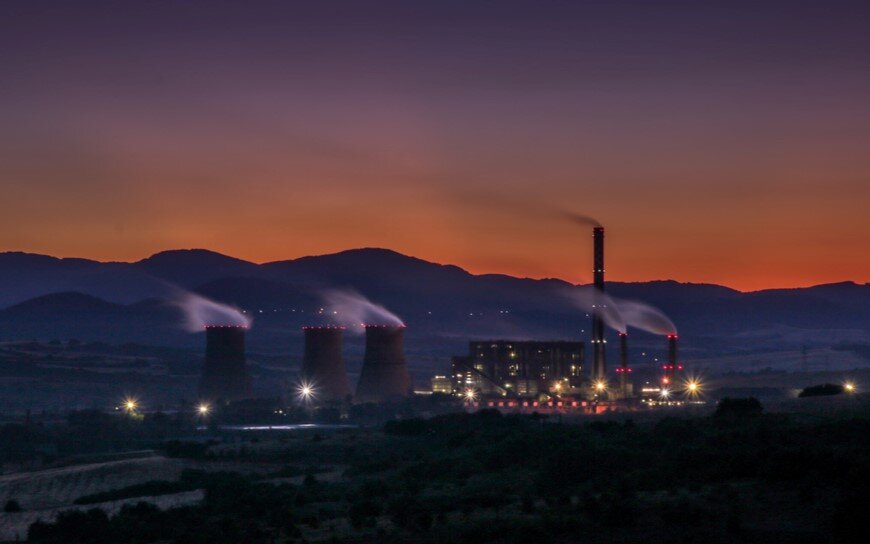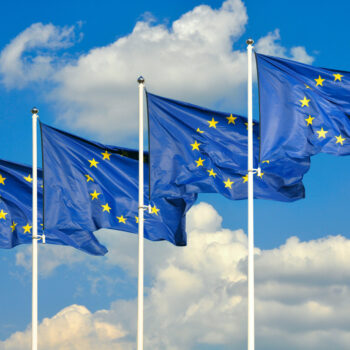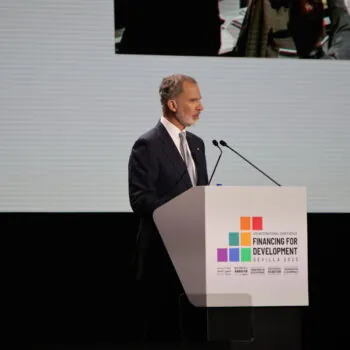As the new caretaker government in Sofia reconsiders negotiations with Gazprom, Russia may prevent Bulgaria from securing any alternative imports by reducing gas supplies, wrote Genady Kondarev on Euractiv.
It is well over three months since Gazprom unilaterally cut the gas supply to Bulgaria and Poland – the first EU member states left without gas from Russia. Bulgaria made it through the summer covering its gas needs from alternative sources, but in June the government in Sofia was overturned. Now, the new caretaker government is reconsidering negotiations with Gazprom.
This was preceded by a statement from the Russian ambassador in Sofia that Russia is ready to resume selling gas to Bulgaria – largely framed as a fulfilment of obligations under a long-term contract that was due to expire in the autumn.
The Bulgarian gas network operator, Bulgargaz, began to raise the alarm about gas shortages. The re-installed head of the National Regulator has been calling to quickly secure a long-term contract to ensure security of supply this winter. The government has, at least, avoided resorting to increased liquified natural gas (LNG) supplies to plug the gap.
Such a U-turn brings significant consequences, for Bulgaria and the EU. Russia breached their contract with Bulgaria at the end of April, while Bulgaria fulfilled and paid everything according to its obligations. This would allow Bulgaria at some point to file a court case, go to arbitrage, and require some compensation.
However if Bulgaria is found to breach any conditions on their end, this could impact or nullify their case. It could also trigger a blame game that would limit the EU’s ability to act. Additionally, there is concern that the current political setting may facilitate the delivery of Russian LNG through shell companies controlled by Russia – all resulting in higher prices for Bulgarian consumers.
By resuming gas supply, Russia may prevent the chance for Bulgaria to secure any alternative imports. Bulgaria would lose any leverage to prevent a scenario under which Gazprom resumes delivery until Bulgaria has lost the alternative supply and then turns off the tap again.
The very start of the negotiations could undermine European solidarity and unity. The current pressure inside Bulgaria to rush into securing a long-term contract opposes the idea of EU common gas procurement. It could also shift the power balance in the Balkans. The axis of cooperation formed by the Bulgarian government’s decision could tilt in two directions.
Athens-Sofia-Bucharest cooperation will support strong pro-EU, energy independence and high renewable energy share policies. However if Sofia, under the current caretaker government, reorients towards an (Ankara)-Sofia-Belgrade-Budapest cooperation, this may cut or slow down many of the proposed measures by the EU and draw Bulgaria into a Russia-friendly, anti-EU and low-RES ambition team – threatening European energy security as a whole.
A better solution than realignment with Russia is necessary and could include:
- The European Commission’s pursuit of full transparency on the joint purchasing talks, to prevent speculation and give Sofia reassurance that alternative gas flows are coming forward and will be shared. Any potential deal should come in line with the existing EU law and not contradict sanctions.
- Any clauses (such as a destination clause) preventing Bulgaria from further distributing the quantities of gas to the rest of Europe should be prevented.
- The EU’s added value lies in supporting faster gas demand reduction to make additional long-term deals superfluous. In Bulgaria, most gas goes to industrial use (38%) and to power and heating (38%). The country has recently avoided further lock-in through a coal-to-gas switch by abandoning the plans for gas turbines and infrastructure in the old coal power plants. Sofia district heating consumes around a third of the country’s gas. Being the single biggest gas consumer and municipally owned makes it possible to move away from fossil gas with a political decision. It can be refurbished to save energy and integrate renewable energy – for example, a combination of solar thermal, thermal storage and heat pumps.
- Regarding industry, Bulgaria must plan both short and long-term. The EU’s planned gas demand reduction plan requires listing the industries that are crucial or cannot operate in stop-and-go mode. Completing this classification will prevent speculations that some actors, who are not key to the economy, might be left to operate due to their position in the political umbrella. In the medium to long term, EU support and analysis can identify industrial sector projects that could lead to more energy-efficient production, and accelerate the switch from gas to renewables-based electricity and low-temperature heat. This will reduce the risk of a deal with Russia and make Bulgarian industry more competitive in the long run. EU Recovery and Resilience Funds and other structural funds could be allocated and accelerated with this analysis.
- Currently, Bulgaria has been relying on the connector Sidirokastro-Kulata as its sole gas supply route, since the flow via Ukraine has been interrupted. However, there is a finished piece of infrastructure that can provide alternative supply and is a step away from becoming operational. The new gas interconnector with Greece can diversify the choice of suppliers and routes for Bulgaria this winter beyond the Sidirokastro-Kulata connector, thereby reducing vulnerability.
- Bulgaria has to align its economy with the Paris Agreement and plan for a complete coal phase-out prior to 2030. This will need minimum to no reliance on gas as a transition fuel and a clear path to exit all fossil fuel use and dependence.
The original version of this op-ed was published on Euractiv.


